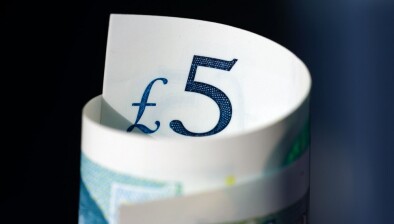UK GDP contracts by 0.3% in April

The UK economy contracted by 0.3% in April, a sharper decline than economists had forecast.
Data released by the Office for National Statistics on Thursday revealed a more substantial downturn than the 0.1% contraction that had been anticipated, reversing the 0.2% growth seen in March.
The disappointing figures arrive amidst a backdrop of increasing global economic uncertainty. The implementation of US tariffs on most imports, including those from the UK, as part of a renewed trade conflict, is beginning to affect international trade.
Domestically, UK businesses are adjusting to a recent increase in national insurance contributions. Households are also feeling the squeeze from higher utility bills, further dampening economic activity.
Despite the economy growing by a robust 0.7% in the first quarter of this year, the Bank of England forecasts a sharp slowdown to just 0.1% for the second quarter. Financial markets expect the central bank to hold interest rates at 4.25% next week, following four reductions since the summer of 2024.
This latest economic snapshot follows Wednesday’s UK government spending review, where Chancellor Rachel Reeves pledged additional funding for the NHS but outlined real-term spending cuts for many other government departments.
Felix Feather, economist at Aberdeen, said: “UK GDP was weaker than expected in April, with the economy contracting by 0.3%, compared to consensus expectation for a 0.1% contraction.
“This weakness follows surprisingly sharp expansions earlier in the year, and so in part likely represents some payback for the past strength.
“In addition, pessimism and uncertainty arising from US tariff policy probably weighed on the economy. The increase to employer national insurance contributions prompted the labour market to cool over the same period, compounding the headwinds.
“Despite the headwinds facing the economy, the Bank of England (BoE) likely to keep policy on hold next week in line with its ‘gradual and careful’ approach to easing.”
Kevin Brown, savings specialist at Scottish Friendly, said: “The feeling was not good ahead of today’s GDP figures. Economists were fretting about the impact of ‘Awful April’, which saw rises in utility and council tax bills, plus a hike in employer’s National Insurance contributions.
“This came against a background of global turmoil, with the US tariff uncertainty continuing to disrupt supply chains.
“As it was, the UK economy performed even worse than expected. This reverses the relatively encouraging data seen since the start of the year, with the economy having outpaced forecasts in the first three months of 2025. It will do little to cheer the Chancellor, who is already struggling with higher borrowing costs and rising demands on the public purse.
“From here, the path of UK economic growth remains uncertain. Investments in infrastructure, AI and education announced in the Spending Review will take time to be felt in tangible economic progress. In the meantime, UK companies are contending with an uncertain operating environment and higher employment costs.
“There are still clear risks for the UK. Careful saving and investing will give households a cushion against volatility”







